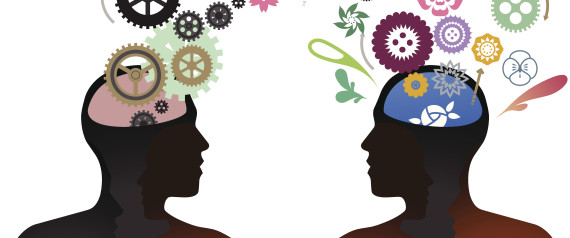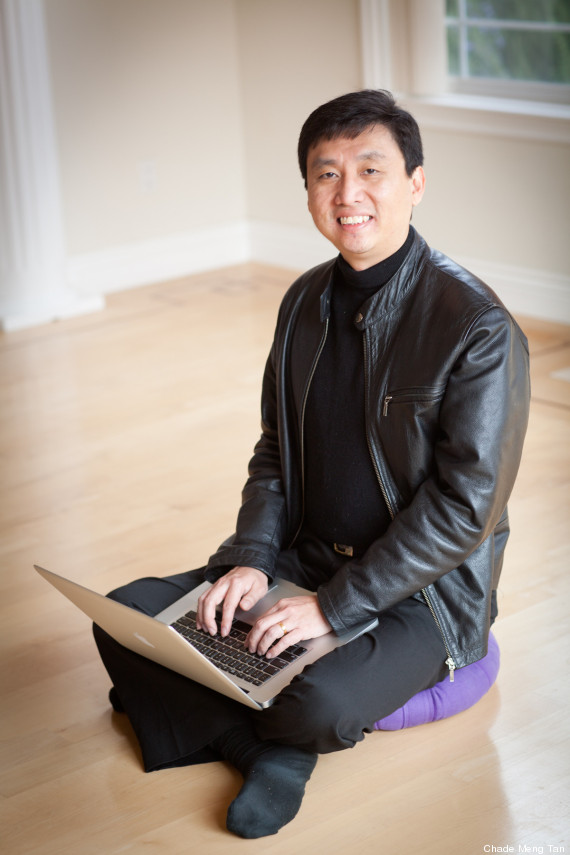Google's 'Jolly Good Fellow' On The Power Of Emotional Intelligence
Posted: 09/29/2013 8:48 am EDT | Updated: 09/30/2013 4:04 pm EDT
“Imagine two human beings. Don’t say anything, don’t do anything, just wish for those two human beings to be happy. That’s all.”
During one recent talk, he gave the group a homework assignment: Perform the exercise the next day at work, spending 10 seconds each hour randomly choosing two people and silently wishing for them to be happy. The following morning, Tan received an email from an employee who attended the workshop that read, “I hate my job. I hate coming to work every day. But yesterday I tried your suggestion and it was my happiest day in seven years.”
It’s not the first time that Tan -- who Wired recently dubbed an "Enlightenment engineer" -- has seen emotional intelligence exercises transform an employee’s work and life. As Google’s resident “Jolly Good Fellow,” Tan developed Search Inside Yourself (SIY) program, a mindfulness-based emotional intelligence training program. Tan's philosophy is that cultivating emotional intelligence through mindfulness training and meditation can help an individual reach a state of inner peace, the essential foundation of happiness, success and compassion.
More than 1,000 Google employees have gone through the SIY curriculum, according to Wired, the principles of which are outlined in Tan's New York Times bestseller, “Search Inside Yourself: The Unexpected Path To Achieving Success, Happiness (And World Peace)". The program focuses on building up the five emotional intelligence domains of self-awareness, self-regulation, motivation, empathy and social skills, primarily through meditation and mindfulness training, which aims to improve one's focus and attention on the present moment.
The benefits of emotional intelligence in the workplace are well-documented, from career success to improved relationships to better leadership -- and Tan says getting Silicon Valley interested in a meditation program to train employees in emotional intelligence wasn't difficult.

"Everybody already knows, emotional intelligence is good for my career, it's good for my team, it's good for my profits," Tan tells the Huffington Post. "It comes pre-marketed, so all I had to do is create a curriculum for emotional intelligence that helps people succeed, with goodness and world-peace as the unavoidable side-effects."
Here are four ways that you can cultivate emotional intelligence -- and revolutionize your work, relationships and happiness.
Meditate.

Tan outlines three major steps to developing emotional intelligence: Training attention ("the ability to bring the mind to a state that's calm and clear, and to do it on demand," he explains), self-awareness, and social intelligence. The first step is building an individual's powers of attention through meditation.
Tan is convinced that much like improving physical fitness, improving "mental fitness" through meditation and mindfulness practices can improve nearly every aspect of your life, from work to family life to physical health.
"There are some things in life where if you improve one thing, everything else in life is improved... If you improve physical fitness, it improves your home life, success, wellness, everything," says Tan. "The same is true for meditation, because meditation is in fact mental and emotional fitness. If you are fit mentally and emotionally, every aspect of your life improves."
Research has confimed that mindfulness contributes to emotional well-being, in addition to improving memory and attention. A 2013 University of Utah study found that individuals with mindful personality traits (such as self-awareness and attentiveness) exhibited more stable emotional patterns and reported feeling more in control of their moods and actions. Brown University research also found that mindfulness meditation could improve an individual's control over brain processing of pain and emotions.
Cultivate compassion.
Meditation is also the primary vehicle for cultivating compassion: A recent Harvard University study found that individuals who underwent eight weeks of meditation training were significantly more likely to help others in need than those who hadn't gone through the meditation training.
Neuroscientists have even seen that meditating on compassion can create an empathetic state in the brain. When Tibetan Buddhist monks were asked to meditate on "unconditional loving-kindness and compassion" in a 2006 study, the researchers measured brain activity in the left prefrontal cortex, which is associated with positive emotions, that was 30 times stronger than the activity among a control group of college students who didn't meditate, Wired reported. The researchers theorized that empathy may be something one can cultivated by "exercising" the brain through loving-kindness meditation.
Read More Here
*************************************************
Ommmm! How Silicon Valley values meditation
Google is going Zen.
Silicon Valley is well known for its lucrative employee perks, but now companies are offering meditation and mindfulness courses to employees and there's a long waiting list to attend. Google's "Search Inside Yourself" course has been taken by more than 1,000 employees and currently has more than 400 on the waiting list. It's designed to teach people to manage their emotions, which could ultimately make them more productive and creative thinkers.
The program was created by Chade-Meng Tan, who was employee #107 at Google. His official job title is "Jolly Good Fellow," which is a drastic change since his days at Google starting out as a software engineer.
He's also come out with a book, "Search Inside Yourself: The Unexpected Path to Achieving Success, Happiness (And World Peace)" which has been ranked a New York Times Best Seller.
"Meng" came to the New York Stock Exchange where he joined CNBC's Tyler Mathisen and Kenny Polcari, director of NYSE floor operations at O'Neil Securities, to give some tips on quick ways to de-stress.
Read More and Watch Video Here
*************************************************






No comments:
Post a Comment
Hello and thank you for visiting my blog. Please share your thoughts and leave a comment :)